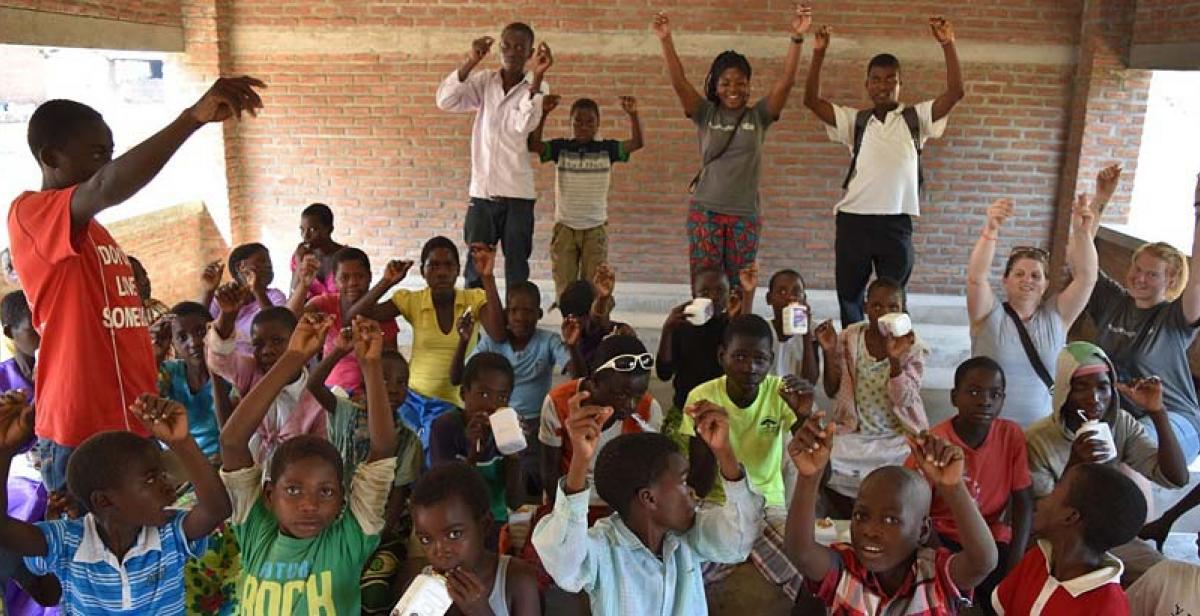International Citizen Service (ICS) was such an important experience for me personally, and I don’t think that I truly realise how much I took away from it and how much of an impression it had on me and on my perspective on my own life and the lives of others. It was much more that simply filling time between graduating university and entering myself into the world of work. As my first time travelling to the African country of Malawi (I don’t think I met anyone who wasn’t surprised that I had never been to Africa before, since my mum was born in South Africa), I felt lucky to have made it through the selection process with Progressio and to be involved with an organisation that is really focused on improving the lives of those who need it the most.
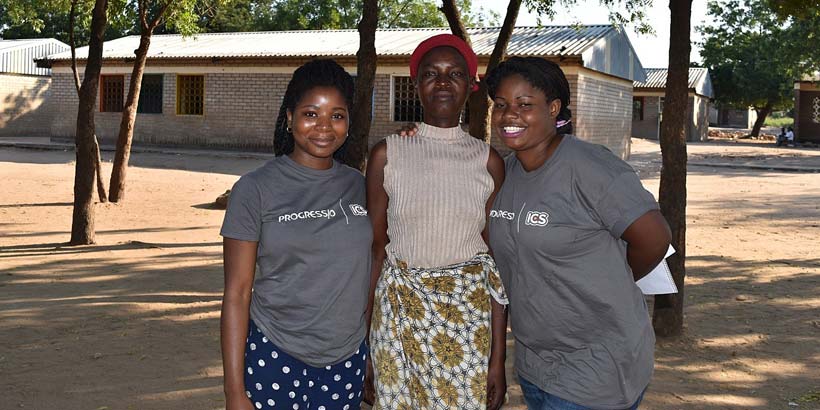
We need ICS because the focus on getting young people from all backgrounds involved makes it inclusive and accessible. I instantly wanted to be a part of it after being told about it by two friends who were just about to embark on their journeys overseas. Like many young compassionate people, it is often finances that hold us back from taking on international volunteering projects. I had seen photos online from people I knew who had also done some volunteering abroad, but I sometimes felt a bit cynical when looking through the classic visiting poor children in an orphanage photos because I knew there were a lot of volunteering companies out there that are more like businesses (where you have to fork out thousands - and you’re still not sure if the work you’re doing is worthwhile) rather than charitable organisations. I was drawn to ICS because it focused on long term and sustainable development through knowledge and empowerment at a local level, where those who we worked with can continue to prosper even once the volunteers have left - rather than a top-down approach that ceases when volunteers are no longer present.
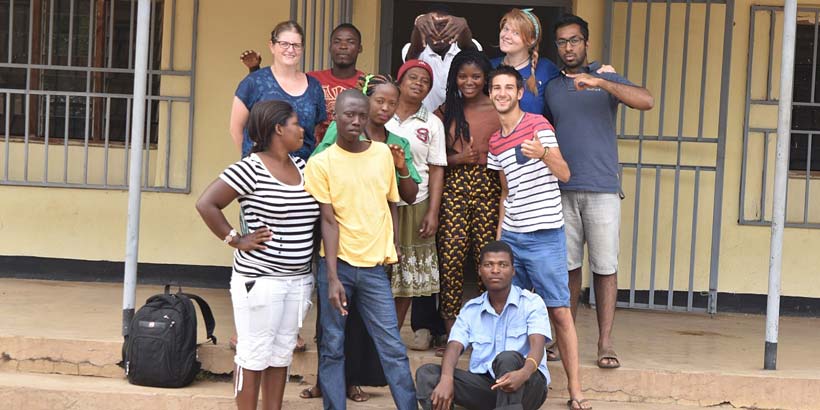
We need ICS because it fosters a generation of culturally, socially and politically aware international citizens. We are often presented in the media as apathetic and selfish; ICS gives us the opportunity to step out of our comfort zones and really engage with some of the issues that are affecting others around the world first hand. One of the things that sets ICS apart from other volunteer experiences I know about is the focus on cultural exchange and sharing experiences. As a team of five British volunteers (including our team leader), we worked alongside six Malawian volunteers who all lived locally to the area and were very knowledgeable about the struggles that they, and others, faced in their local communities. It was with their local knowledge that we could really pinpoint what needed doing and how this could be approached. On our first week on placement, we did an exercise that was really helpful in bringing to the fore, the differences between our two cultures. This was initially quite heated, especially when it came to ideas on sexuality, gender equality and relationships, however, it was a really necessary task for us all to know where each other stood and where we were all coming from in our opinions, as well as correcting some very misinformed factual knowledge on subjects like pregnancy or disease transmission. It was a great learning curve for both us Brits and our Malawian counterpart. Although there were some massive cultural differences that did get a bit heated at times, we found that as young people of a similar age, we also had a lot more in common than we initially thought and it was these commonalities that helped us bond and learn more about each other, which in turn allowed us to work better as a team (that isn’t to say, we didn’t have the occasional clash of opinion or heated argument!).
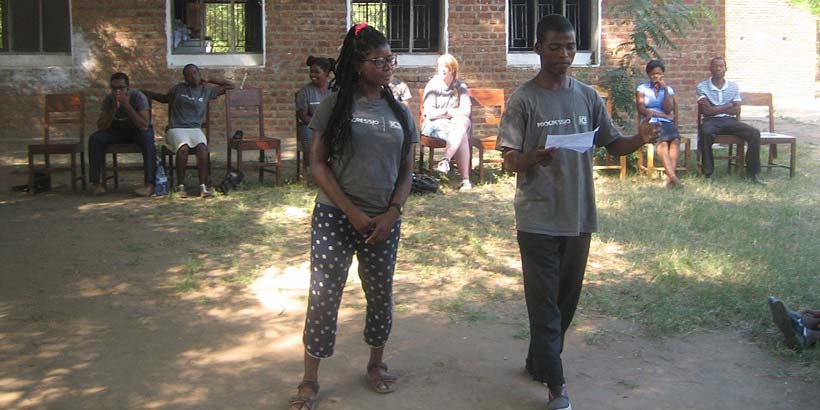
We need ICS because it is a priceless opportunity to learn a whole host of new skills, strengthen those you already have and use your own expertise and experience to help others develop those skills. If I were to write down everything I learned during my ICS experience, I think the list would be very very long! But I really surprised myself with some of the activities I was able to successfully do, which I had no previous experience in, such as organising a HIV testing day, teaching English skills and presenting leadership skills workshops. I was definitely nervous about some of these things beforehand. Standing in front of a few hundred teenagers, trying to do a presentation on sexual health, was quite an intimidating prospect for me to begin with, however, after doing this several times throughout our placement, it began to come naturally and I no longer dreaded it. I actually looked forward to it. Presentation skills was just one of many things I got better at and I think that without being thrown in at the deep end, I would not have progressed quite so much in so little time!
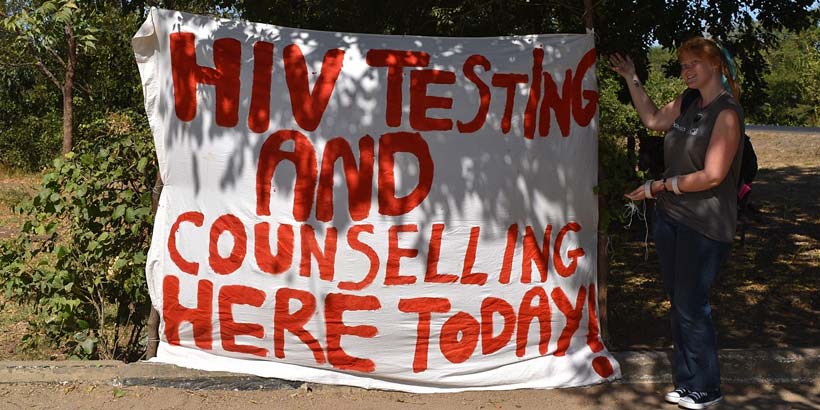
We need ICS because we have to continue breaking down the barriers and stigmatised attitudes towards people diagnosed with HIV and to promote gender equality. We need to continue to empower people to know the truth from myth and the rights that come with being human, whatever your gender. We need people to know that being HIV positive isn’t a death sentence or reason to be ostracised and discriminated against in their own local communities. We need to continue encouraging the youth to practicing safe sex and know exactly how STIs are transmitted and the effects they have on lives. We need to empower young girls to be confident and to say no to child marriage and continue in their education so they can be self-sufficient. Without ICS, I wouldn’t have met Beatrice, a teenager at St Michael’s School in Chikwawa, who used me as her role model for staying in education and aspiring for a successful career, when she could easily drop out of school to get married. Without ICS, I wouldn’t have had first-hand experience of seeing ‘the other side of the coin’; experiencing (even if just for a short time) some of the struggles of living in a ‘third world’ country or realised just how much I take for granted having been born in the UK. ICS was, and continues to be, an invaluable experience and to anyone reading this who is unsure about whether to apply or not, I would wholeheartedly urge you to go for it! You literally have nothing to lose and everything to gain as an experience. You need ICS.
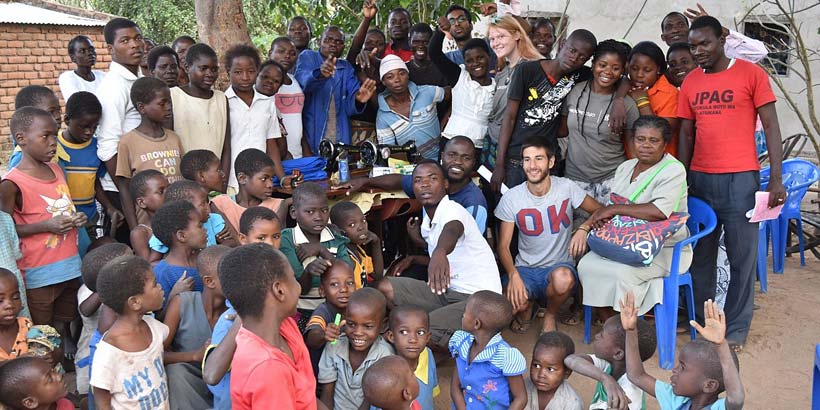
Written by ICS alumni Mica Anthony (April - June 2015 cycle, Malawi)


